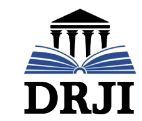OPTIMIZING PRODUCTIVE WAQF THROUGH SMALL AND MEDIUM ENTERPRISES (SMEs) FINANCING BASED ON GREEN ECONOMY
Abstract
There is an effort to examine economic activities in an Islamic manner in response to current economic issues. Various discussions, training, workshops, and seminars have been conducted concerning the revitalization of waqf institutions, which are an essential part of Islamic economic instruments. The formation of green entrepreneurship is necessary to support sustainable economic independence. This can be established by optimizing waqf funds by providing financing to Small and Medium Enterprises (SMEs). Waqf plays a role in addressing social problems in society. Poverty, unemployment, malnutrition, and school dropouts can be addressed through the empowerment and management of waqf as a source of funding for the ummah. This research uses library research with a descriptive qualitative method, noting findings regarding global concepts in each discussion within the research derived from literature and recent sources. In this context, it concerns productive waqf. After recording, it then integrates the findings, whether theory or research results from the reading sources. Financing through the waqf instrument is one form of productive waqf management. This scheme is implemented by providing and distributing the benefits of waqf through financing schemes given to the mauquf alaih or the recipients of waqf benefits.
Keywords
Full Text:
PDFReferences
Ahmed Khalil, I., & Yunus Ali, M. (2014). Waqf Fund Management In Kuwait And Egypt: Can Malaysia Learns From Their Experiences. https://www.researchgate.net/publication/337137337
Ahmed, U., M. Omar, M., & Ogunbado, F. A. (2015). Examining the Traditional Waqf-Based Financing Methods and Their Implications on Socio-Economic Development. IOSR Journal of Business and Management (IOSR-JBM), 17(2).
Arijuddin, A. M., & Nurwahidin, N. (2023). Optimalisasi Peran Wakaf dalam Pengembangan Pariwisata Halal di Indonesia. Jesya, 6(1), 422–435. https://doi.org/10.36778/jesya.v6i1.928
Badan Wakaf Indonesia. (2019). Buku Pintar Wakaf (1st ed., Vol. 1). Badan Wakaf Indonesia.
Badan Wakaf Indonesia. (2023). Analisis Kinerja Pengelolaan Wakaf Nasional 2022 (1st ed.). Badan Wakaf Indonesia.
Bungin, B. (2007). Penelitian Kualitatif: Komunikasi, Ekonomi, Kebijakan Publik dan Ilmu Sosial Lainnya. Kencana.
CAF. (2022). World Giving Index 2022 A global view of giving trends.
Fauza, N. (2015). Rekonstruksi Pengelolaan Wakaf : Belajar Pengelolaan Wakaf dari Bangladesh Dan Malaysia. Jurnal Keislaman Dan Kebudayaan, 9(2), 165.
Fuadi, N. F. Z. (2018). Wakaf sebagai Instrumen Ekonomi Pembangunan Islam. Economica: Jurnal Ekonomi Islam, 9(1), 151–177. https://doi.org/10.21580/economica.2018.9.1.2711
Meleong, L. J. (2017). Metodologi Penelitian Kualitatif Edisi Revisi, Cet. Ke-23 (22nd ed.). PT. Remaja Rosdakarya.
Muhammad A.A, F., & Rosidta, A. (2023). Peran Wakaf Dan Zakat Dalam Meningkatkan Ekonomi Masyarakat Indonesia. Lisyabab (Jurnal Studi Islam Dan Sosial), 4(2), 162–185.
Nur Rohim, A. (2021). The Optimization of Waqf as a SMES Financing Instrument for the Halal Industry Development. Jurnal Bimas Islam, 14(2), 312–344.
Shabana, H. (2011). Role of Waqf in Enhancing Muslim Small and Medium Enterprises (SMEs) in Singapore. 8th International Conference on Islamic Economics and Finance, 1–50.
Sugiyono. (2014). Metode Penelitian Kuantitatif Kualitatif dan R & D. Alfabeta.
Thaheransyah. (2020). Strategi Pemberdayaan Masyarakat Oleh Badan Wakaf Uang Muhammadiyah (BWUM) Sumatera Barat. TATHWIR (Jurnal Pengembangan Masyarakat Islam), 11(2), 150–160.
Traore, I., Sulong, Z., & Doukoure, A. (2018). Conceptual Review for Cash Waqf Using Mudharabah Approach for Developing Public Employment Opportunity. Journal of Halal Industry & Services, 1(1).
Wahyudi, D., Peny, C. A., & Achmad, A. (2018). Sinergitas Organisasi Publik Dengan Mengimplementasikan Sukuk Wakaf Melalui Pembentukan Halal Center Industry. Simposium Nasional Keuangan Negara.
DOI: https://doi.org/10.46576/ijsseh.v5i3.5107
Article Metrics
Abstract view : 187 timesPDF – 116 times
Refbacks
- There are currently no refbacks.
Copyright (c) 2024 Lukman Hakim Siregar

This work is licensed under a Creative Commons Attribution-NonCommercial-ShareAlike 4.0 International License.
Dharmawangsa International Journal Indexed by:
Member Of :
Dharmawangsa: International Journal of the Social Sciences, Education and Humanitis Published By:
UNIVERSITAS DHARMAWANGSA
Alamat : Jl. K. L. Yos Sudarso No. 224 Medan
Kontak : Tel. 061 6635682 - 6613783 Fax. 061 6615190
Email : dharmawangsajournal@dharmawangsa.ac.id
Dharmawangsa:International Journal of the Social Sciences, Education and Humanitis by Universitas Dharmawangsa Medan is licensed under a Creative Commons Attribution-NonCommercial-ShareAlike 4.0 International License.
Based on a work at: https://jurnal.dharmawangsa.ac.id/index.php/dharmawangsa/index

11.jpg)
















